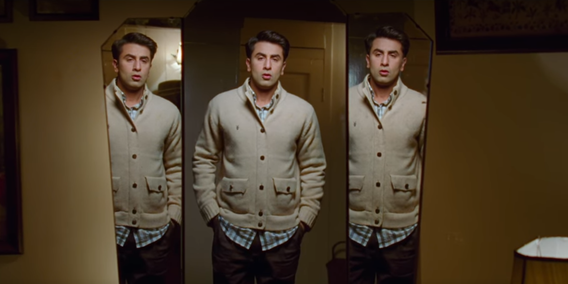Hustling Is Not The Same As Hard Work
Recently, Naomi Osaka, a Japanese Tennis player, decided to quit the French Open citing mental health concerns. This might have been one of the first times that a sportsperson has quit, not due to physical injuries but due to mental health concerns.
Like The Swaddle said: “…Opting out of a coveted tennis tournament to safeguard her mental health was “shocking” to many. This leaves one to wonder whether the shock-value of her decision is reflective of the fact that as a society, we don’t treat mental health at par with physical health — perhaps, because of its invisibility.”
Our generation is so used to talking about and running towards success that anyone who tries to talk about their failure (or not wanting to continuously work) is perceived with some level of disappointment. Well, it makes sense, right? We’ve been raised in an era that has introduced us to new technology, constantly blurring lines between home and work, and many of our role models who toiled for hours together – are really famous today.
Don’t get me wrong, working is not bad. Working hard is not bad either. It’s important. We live in a world where money is the only thing that allows for comfort, now yes, I know that money can’t buy happiness… but it does help us get things that make us happy in the longer run (including therapy, right?).
When I address hustling in this post, I am talking about the practice of working incessantly. A culture that puts professional achievements on a pedestal, where self-fulfilment depends solely on sacrifice and grinding all the time. Where, if each second of our day is not used for ‘seemingly’ productive work, it is seen as a failure. While many people brag about hustling, it can have a massive impact on our physical and mental health.
“…Such exhausting schedules may lead to disruption in the biological rhythm of the body and can have significant effects on work efficiency, sleep patterns, mental health, psychological or behavioural changes, stress, depression, Type II Diabetes, reproductive outcome, obesity, hypertension and developing cerebro-cardiovascular complications. We should not exclude the risk of suicides as Japan has reported such cases lately.”
– Dr M. Tasdik Hasan, a Global Mental Health Researcher
A study by Mental Health America shows that more than 75% of respondents agreed that workplace stress has had an effect on their mental health, causing conditions such as depression or anxiety and feelings of guilt and shame.
The biggest problem – and no surprises here – is social media. Motivational speakers talk about how working all the time is the secret to their success; we constantly compare ourselves to people who ‘work hard, play hard’; and are even expected to keep working 24 x 7 by our employers, because that’s what everyone does!
What is the difference between hustling and working?
Hustle would mean you are hitting the ground running towards goals. You wake up, check your phone and begin working, almost on autopilot, possibly wanting to achieve every demand, and satisfying everyone throughout the day. This could also mean that your motivation to work stems from feelings of fear and the anxiety of not doing well enough, so you keep going till you check off one achievement after another … and sometimes none of it leaves you feeling satisfied at the end.
If my schedule is surrounded only around my future goals, I have self-talk that revolves more around “I should…” or “I have to…” instead of “I want…” or “I choose to…”, I blame myself for not doing something well, or if the pressure ends up making me feel tired, anxious, or angry, then this would mean I am hustling, grinding, doing whatever it takes to be successful – and consequently, it will lead to burnt out.
Hard work, on the other hand, is also internal motivation, but one that’s surrounded by passion and purpose. You control the environment around you, and not the other way around. Of course, there are goals, but these are planned out and you take them one step at a time. This means, we are not on auto-pilot all the time.
Hard work means that you choose to do what you want to achieve goals based on your capabilities, wants and needs. There is no competition to be able to achieve more because everyone has their own experiences. As cliched as it sounds, hard work would mean more about the process of completion itself rather than just reaching the end goal.
Time we give for work:
Hard work would also entail separating ourselves from our work as well. Again, work is important and is a basis of living, yes. But working for more than 10 hours a day would mean that it’s become the centre of our lives. How do we go about separating our identity as a professional from who we are personally? It’s an important distinction to make.
We are more than our work. Think of the roles you play in each relationship of your life, with your team mate, your boss, as a business person, as a brother or sister, your romantic partner, or just the relationship you have with yourself. Make them distinct and note them down. Describe yourself in ways that do not include your professional work, and remember that you are more than an engineer, businessman, content creator, data analyst or teacher. You are a person with various lived experiences and you deserve breaks from that professional tag – we all do.
There is no doubt that hard work has its struggles and there will be some days where you feel like you’ve hit a dead end, where you cannot solve a problem, or where the anxiety of productivity will get to you. In this scenario, instead of saying “No, I have to do it” or “I should be able to do it”, “Everyone is doing it, why can’t I?” (the basic ideas we have of productivity and hustling on social media), you would rather say “What can I do right now?” – If that’s calling a friend, analysing the data, asking your mentor or taking a small break – the agency of control, of power, of working toward the solution – is with you.
Meet The Author








